
 The late Blake Edwards is probably one of the last filmmakers you’d ever think would dip his toes into the murky waters of post-modernism, but it’s impossible not to notice the meta qualities of S.O.B. (we’re told it stands for “Standard Operational Bullshit”), his ode to the crass insanities of the filmmaking industry.
The late Blake Edwards is probably one of the last filmmakers you’d ever think would dip his toes into the murky waters of post-modernism, but it’s impossible not to notice the meta qualities of S.O.B. (we’re told it stands for “Standard Operational Bullshit”), his ode to the crass insanities of the filmmaking industry.
How else would you describe a movie about a filmmaker who attempts to create a hit by baring the breasts of his movie-star wife — a famous paragon of onscreen innocence and virtue — that just happened to be made by a filmmaker who was attempting to create a hit by baring the breasts of his movie-star wife, who just happened to be Maria Von Trapp and Mary Fucking Poppins?
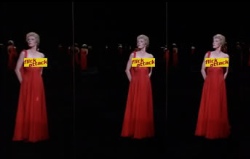 Unlike the film within the film, the sight of Julie Andrews’ breasts didn’t cause anyone to rush to the box office, but that doesn’t mean S.O.B. isn’t a classic satire of early ’80s Hollywood culture. While occasionally overly broad and at least 30 minutes too long (I would have cut most of the last 20 minutes and everything to do with Loretta Swit’s gossip columnist), the movie is often laugh-out-loud funny and features an amazing cast doing what they do best.
Unlike the film within the film, the sight of Julie Andrews’ breasts didn’t cause anyone to rush to the box office, but that doesn’t mean S.O.B. isn’t a classic satire of early ’80s Hollywood culture. While occasionally overly broad and at least 30 minutes too long (I would have cut most of the last 20 minutes and everything to do with Loretta Swit’s gossip columnist), the movie is often laugh-out-loud funny and features an amazing cast doing what they do best.
This includes William Holden, appearing as a slightly happier version of the same character he played in the similarly themed Network; Richard Mulligan as the crazed producer who decides to transform his G-rated flop into a X-rated hit; a young Rosanna Arquette, who doesn’t say or do much, but who is braless and topless just long enough to earn a mention; and Robert Preston, who easily steals the show as the laid-back physician who’s seen it all at least twice, and done it himself at least once.
And, because you are wondering, despite the fact that Julie Andrews was 46 when the movie was made, they’re real and they’re spectacular. —Allan Mott

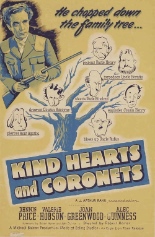
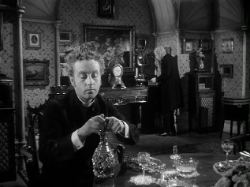 As played by Dennis Price, Louis Mazzini is so upfront and charming about his crimes and his reasons for committing them that it’s only in retrospect you realize there might be something wrong with him. It’s easy to imagine yourself in his place, doing exactly the same thing. The only reason he isn’t considered one of the greatest villains in film history is because writer/director Robert Hamer so expertly presents him as its hero, it’s impossible to think of him as anything else.
As played by Dennis Price, Louis Mazzini is so upfront and charming about his crimes and his reasons for committing them that it’s only in retrospect you realize there might be something wrong with him. It’s easy to imagine yourself in his place, doing exactly the same thing. The only reason he isn’t considered one of the greatest villains in film history is because writer/director Robert Hamer so expertly presents him as its hero, it’s impossible to think of him as anything else.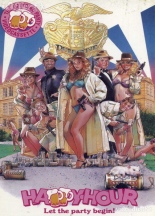
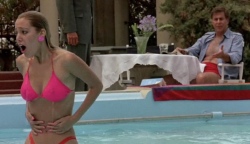 Recognizable TV character actor Richard Gilliland stars as a chemist who accidentally discovers an additive that makes Marshall Beer dangerously addictive. The promotion that results enrages his lab partner/ex-girlfriend, prompting her to steal half of the formula and take it to Marshall’s largest competitor. Little, who limits himself to just one (terrible) Cary Grant impression, is the James Bond-like spy hired to steal the formula from Marshall, while sleazy scumbag Farr and his psycho partner Kitaen (in a clear bit of typecasting) are tasked to steal the formula from Marshall’s competition.
Recognizable TV character actor Richard Gilliland stars as a chemist who accidentally discovers an additive that makes Marshall Beer dangerously addictive. The promotion that results enrages his lab partner/ex-girlfriend, prompting her to steal half of the formula and take it to Marshall’s largest competitor. Little, who limits himself to just one (terrible) Cary Grant impression, is the James Bond-like spy hired to steal the formula from Marshall, while sleazy scumbag Farr and his psycho partner Kitaen (in a clear bit of typecasting) are tasked to steal the formula from Marshall’s competition.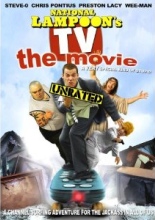
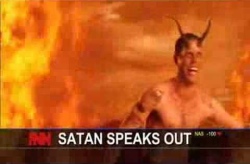 The
The 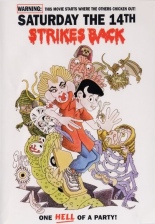
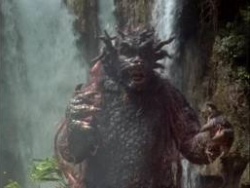 Written and directed by Howard R. Cohen, the auteur also responsible for the original
Written and directed by Howard R. Cohen, the auteur also responsible for the original